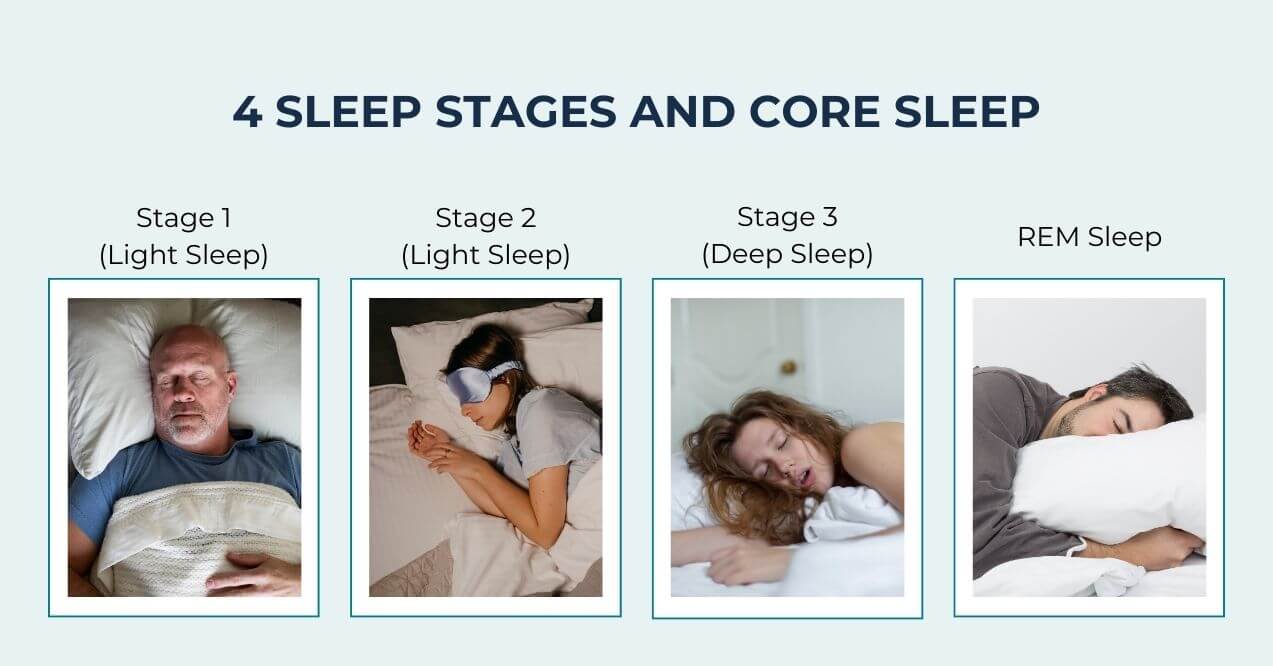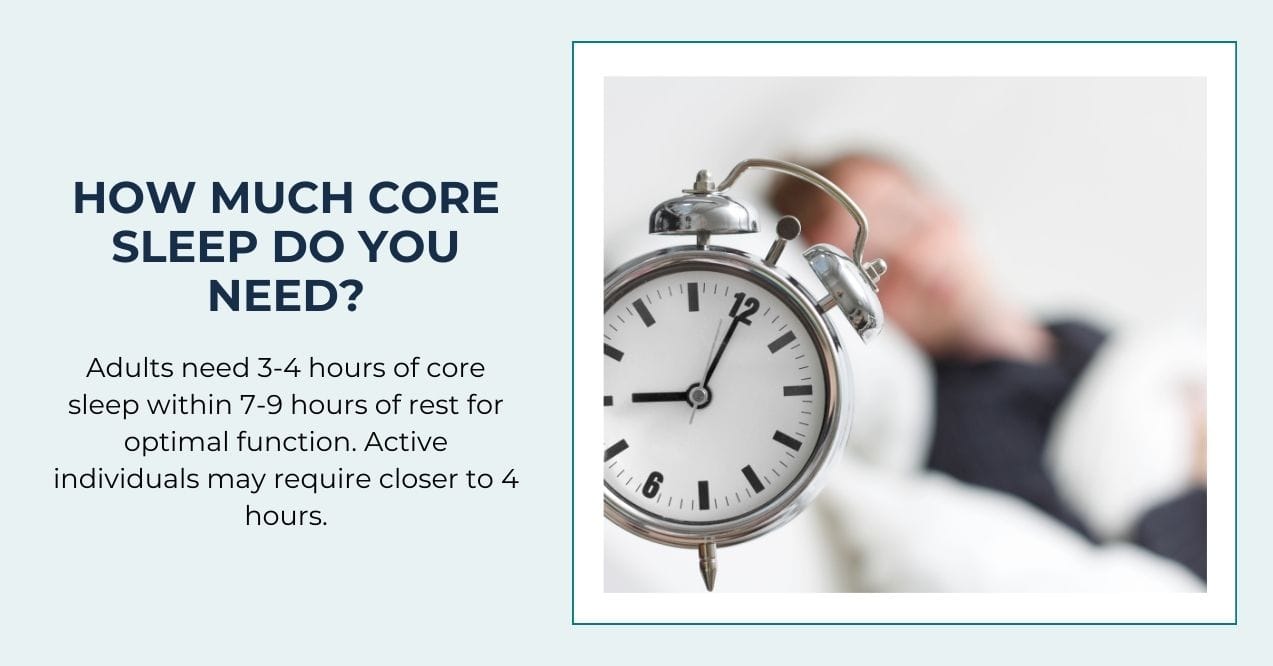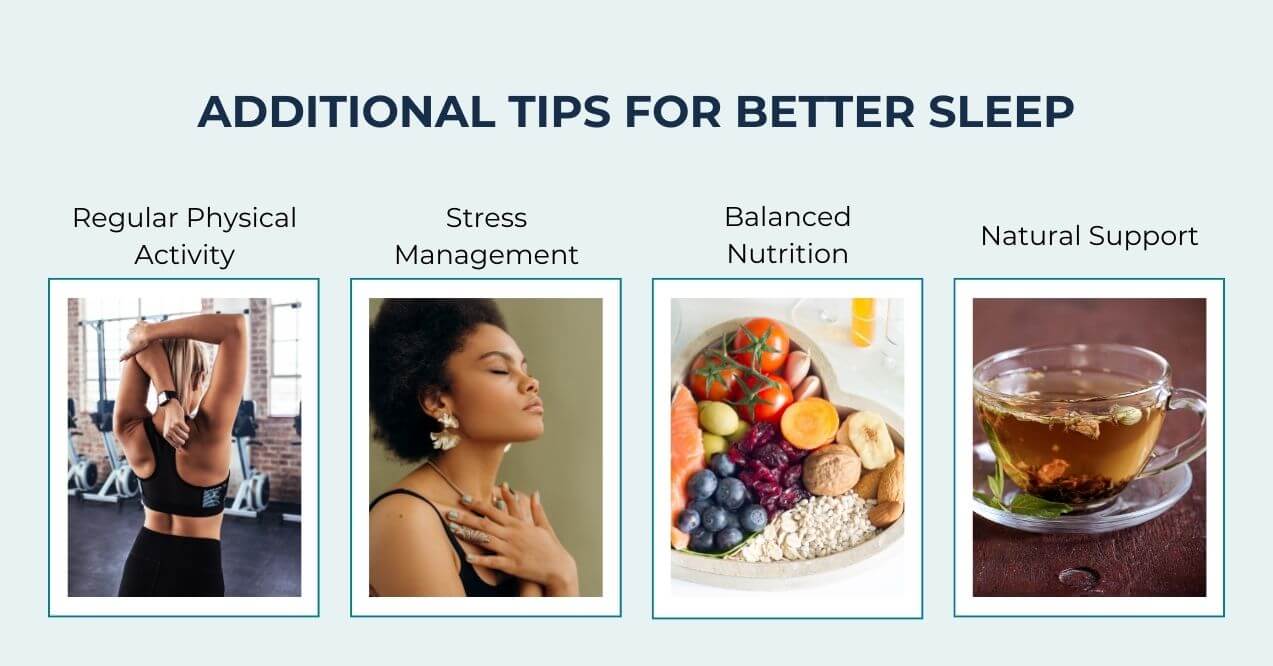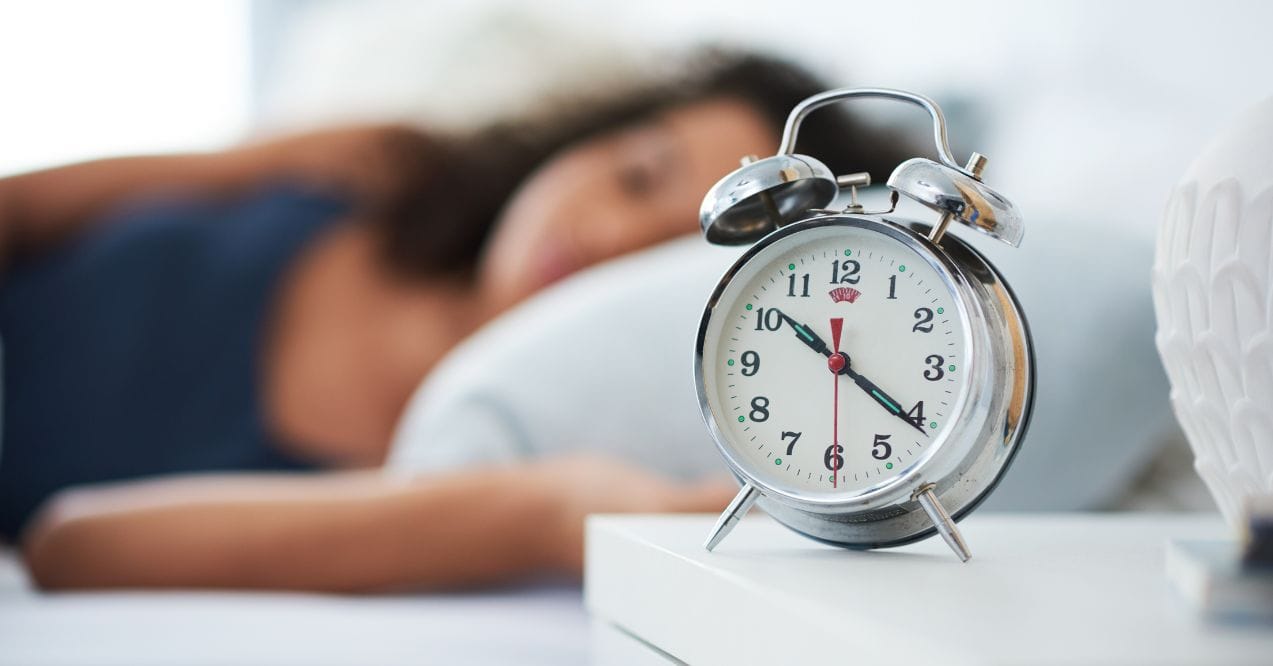What is Core Sleep? Benefits and How to Get It
Learn what is core sleep, its crucial stages, and how to improve your sleep quality. Get expert tips for better rest and natural support.


Getting a good night’s sleep becomes more important as we age, yet many of us struggle to maintain healthy sleep patterns. While you may be familiar with terms like “beauty sleep” or “catching Z’s,” there’s a crucial aspect of sleep that deserves our attention: core sleep.
What is core sleep, and why does it matter for your well-being? This essential component of your nightly rest plays a vital role in supporting your mental sharpness, emotional balance, and physical vitality. Understanding how to optimize your core sleep can help you wake up feeling more refreshed and energized, ready to embrace each new day.
What is Core Sleep?
Core sleep meaning refers to the most essential stages of sleep that contribute to physical and mental restoration. While not a medical term, “core sleep” generally describes the deep and REM (rapid eye movement) sleep stages, which are crucial for recovery. Deep sleep helps the body repair tissues, strengthen the immune system, and release growth hormones. REM sleep, on the other hand, is vital for cognitive functions, such as memory consolidation and emotional regulation.
So, what does core sleep mean in comparison to general sleep? Unlike lighter sleep stages, which make up a large portion of the night, core sleep is when the body undergoes the most significant restorative processes. Without sufficient core sleep, individuals may experience grogginess, reduced focus, or changes in immune response.
4 Sleep Stages and Core Sleep

Understanding the core sleep stages helps explain why certain parts of your sleep cycle are more valuable than others. Your body moves through four distinct stages during sleep, each serving a unique purpose in restoration and recovery.
- Stage 1 (Light Sleep) – Your body enters a state of light slumber where you drift in and out of consciousness easily. Your breathing slows, and your muscles begin to relax. This initial phase typically lasts several minutes.
- Stage 2 (Light Sleep) – A slightly deeper form of light sleep where your body temperature drops, and brain waves slow down with occasional bursts of activity. This stage helps consolidate memories and learning.
- Stage 3 (Deep Sleep) – Also known as slow-wave sleep, this crucial component of core sleep is when your body focuses on physical restoration. Your breathing slows significantly, and your muscles fully relax.
- REM Sleep – Marked by rapid eye movements and increased brain activity, this stage plays a vital role in emotional processing and memory consolidation. During REM sleep, your brain is almost as active as when you’re awake, supporting cognitive function and creativity.
What Does Core Sleep Do?
Core sleep plays a fundamental role in maintaining your body’s natural balance and supporting overall well-being. Research suggests that deep sleep stages, which are central to core sleep, actively support memory formation and cognitive function.
During core sleep, your brain engages in essential maintenance tasks:
- Memory Enhancement – Your brain consolidates information from the day, transforming short-term memories into long-term ones. Studies show this process supports learning and skill development.
- Emotional Balance – Core sleep helps regulate emotional responses and supports stable mood patterns. Research revealed that quality deep sleep contributes to emotional resilience.
- Physical Restoration – Your body uses this time for cellular repair and renewal. According to research, deep sleep stages support muscle recovery and tissue regeneration.
How Much Core Sleep Do You Need?

How much core sleep do you need to maintain optimal function? Research suggests most adults require approximately 3-4 hours of core sleep within their total sleep time. Think of it as the essential foundation of your nightly rest. While everyone benefits from a full 7-9 hours of sleep, those initial hours of deep and REM sleep are particularly crucial.
Your core sleep needs may vary based on factors like age and activity level. For instance, physically active individuals might require closer to 4 hours of core sleep to support recovery. The key is maintaining consistent sleep patterns that allow your body to achieve these vital sleep stages regularly.
How to Get More Core Sleep?
Getting quality core sleep starts with creating the right conditions for rest. Here’s how you can optimize your sleep:
- Maintain a Consistent Schedule – Go to bed and wake up at the same time every day, even on weekends. This helps align your body’s natural sleep-wake cycle with your core sleep needs.
- Create a Relaxing Evening Routine – Develop calming pre-sleep rituals like reading, gentle stretching, or listening to soothing music. This signals to your body that it’s time to wind down.
- Optimize Your Sleep Environment – Keep your bedroom cool, dark, and quiet. Consider using earplugs, an eye mask, or white noise if needed to minimize disruptions.
- Practice Good Sleep Habits – Limit caffeine after midday, avoid screens an hour before bed, and try to finish eating at least 2-3 hours before sleep time.
For additional support, consider adding to your routine Sleep Formula, a natural sleep support supplement that may help promote relaxation and support restful sleep. This carefully crafted formula features time-tested ingredients like Valerian Root Extract and GABA, which are traditionally used to support relaxation and sleep patterns.

Sleep Formula works to support all aspects of your sleep cycle by promoting calmness, helping to maintain muscle relaxation, and supporting natural sleep patterns. The premium ingredients in this formula are selected to support healthy sleep patterns and promote restful nights. For those seeking natural sleep support, Sleep Formula offers a gentle approach to maintaining restful nights and energized mornings.
Addressing Sleep Disorders
Sleep disruptions can significantly impact your core sleep quality, making it difficult to experience those essential deep and REM sleep stages. Common sleep challenges include difficulty falling asleep, waking frequently during the night, or awakening too early. If you consistently struggle with sleep despite following good sleep practices, consider speaking with a sleep specialist. They can help identify any underlying factors affecting your rest and suggest appropriate solutions to support better sleep patterns.
Additional Tips for Better Sleep

Beyond basic sleep hygiene, several lifestyle factors can help improve your core sleep quality and could be beneficial for those wondering how to improve HRV (Heart Rate Variability):
- Regular Physical Activity – Engage in moderate exercise during the day, but try to finish at least 3 hours before bedtime. Regular activity supports better sleep architecture.
- Stress Management – Practice relaxation techniques like deep breathing, meditation, or gentle yoga to calm your mind before bed.
- Balanced Nutrition – Maintain a healthy eating pattern and avoid heavy meals close to bedtime. Consider foods naturally rich in sleep-supporting nutrients.
- Natural Support – Explore natural options like herbal teas or supplements that promote relaxation. Always research thoroughly and choose high-quality products.
Conclusion
Understanding what is core sleep – those crucial deep and REM sleep stages – is essential for maintaining your overall well-being. By prioritizing your sleep environment, establishing consistent routines, and making lifestyle choices that support quality rest, you can enhance your core sleep experience. Remember that good sleep isn’t a luxury; it’s a fundamental aspect of a healthy lifestyle that supports your body’s natural restoration processes. Take the first step toward better sleep tonight by implementing these evidence-based strategies.
Core sleep includes both deep sleep and REM sleep phases, while deep sleep is just one component of core sleep. Deep sleep focuses on physical restoration, whereas core sleep encompasses the full range of restorative processes including memory consolidation.
You’re likely getting sufficient core sleep if you wake up feeling refreshed, maintain good energy throughout the day, can think clearly, and don’t experience excessive daytime sleepiness or mood fluctuations.
Insufficient core sleep typically leads to difficulty concentrating, mood changes, reduced energy levels, and impaired memory function. You might also experience increased irritability and find it harder to regulate emotions.
While you can’t fully “make up” lost core sleep, you can support recovery by maintaining consistent sleep schedules and allowing for longer sleep periods when possible. The key is establishing regular sleep patterns.
No, core sleep needs vary among individuals. While most adults need 3-4 hours of core sleep, personal factors like activity level, age, and overall health can influence individual requirements.
As we age, the amount of deep sleep naturally decreases, making it more important to prioritize good sleep habits. Older adults may need to focus more on sleep quality and consistency to maintain adequate core sleep.
Sign up for our Healthy Living newsletter!
Advertisement. This site offers health, wellness, fitness and nutritional information and is designed for educational purposes only. You should not rely on this information as a substitute for, nor does it replace, professional medical advice, diagnosis, or treatment. If you have any concerns or questions about your health, you should always consult with a physician or other health-care professional. Do not disregard, avoid or delay obtaining medical or health related advice from your health-care professional because of something you may have read on this site. The use of any information provided on this site is solely at your own risk.








